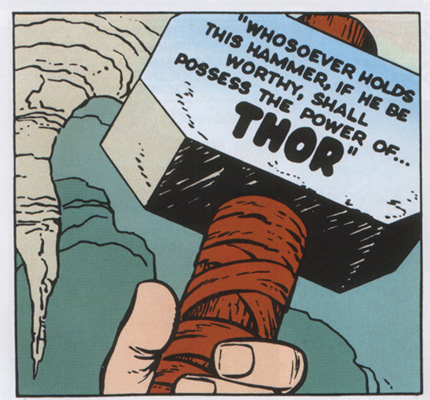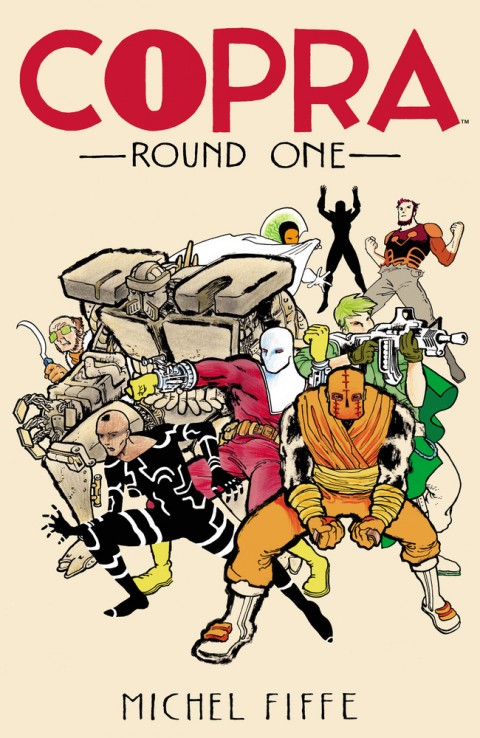I’ve visited a lot of comic shops, I’ve attended or worked a lot of book conventions, and I’ve talked with a lot of fans. I guess for the ease of discussion we can place them into two groups: collectors and readers.
On one extreme end of the spectrum I remember chatting with a young man who only collected CGC books and never read anything. He like the way that the books looked in the pristine plastic cases, he liked the history behind books, he liked grading books, and he liked building and selling a collection, but he had no interest in reading the original stories (he felt them hokey). On the other extreme end of the spectrum are people who only read books and could care less that comics have a collectability and value on the secondary market. They want to consume stories and they never go back and re-read anything because there are too many new stories that they haven’t read yet.
Now most of us fall somewhere in-between these two extremes, and this means that comic books are both a hobby and entertainment. Last week, Scott wrote about the high cost of comic books. This is a sentiment that is seeing a lot of discussion right now. From a hobby point of view comic books aren’t really that expensive. There is a very low entry cost into collecting, but if you are trying to get 9.8s of Marvel keys you’ll find your hobby gets pretty pricey. In this way comic book collecting really is no more expensive than collecting stamps or coins or Pez dispensers. So from a hobby point of view is $4 per book a lot to grow your collection? Not really. But from an entertainment dollar point of view comic books are very expensive.
Sales of new comic book issues have been decreasing (in terms of units sold) and we’ve talked a lot on this website about how partially that is because the larger publishers have been selling to an aging collector demographic. Arguably, if you want to grow readership you are going to bring people to the hobby because of good stories, and not because they hope to amass a large collection worth money. However, there is fierce competition for this new reader, not only among the companies themselves but also from other types of entertainment.
After paying the bills, buying groceries, and saving a little for a rainy day most people don’t have a lot left over. So more and more everyone is being pretty choosy about how they spend their mad money. Even if you are an energetic youth without the worry of a mortgage you still are going to be picky deciding what to spend your allowance on. Comic books aren’t competing against themselves; they are competing against movies, video games, TV shows, and any other manner of shiny objects.
I do think that breaking down a per hour value is useful, but I also think that Scott reads faster than most people. I’d peg reading one of today’s comic books at about 15 minutes. So that works out to about $16 per hour. Let’s look at some other forms of entertainment (I’ve used some averages for price and time below):
Video games: $60 cost/20 hr = $3 per hour
TV Series (DVD set) $50 cost/10 hr = $5 per hour
Movies = $14 cost/2 hr = $7 per hour
Novel = $10 cost/10 hours = $1 per hour
Looking at comic books as a hobby it isn’t really fair to compare their cost to watching TV (not many people would say that TV is their hobby) but if we approach from the point of view that consumers have finite resources it does raise concerns. If I only have $20 each week to spend on fun then what am I going to choose? Most likely I’ll try to get the most bang for my buck. From this point of view video games seem like a steal compared to comic books.
I’m not saying that people should do the above activities instead of reading comic books, but I do think that the industry needs to face the reality that compared to other forms of entertainment the cost seems high. The competition between comic books and other forms of entertainment is even seen at conventions. Comic books are becoming smaller and smaller parts of large entertainment events. They now share space with TV shows and movies and video games and novels. There is a direct and constant reminder at every convention about the competition facing comics. So the industry needs to either 1) decrease the cost of books, or 2) increase the perceived value by the customer. Both are easier said than done.
If you reduced the books to a dollar would they sell 5 times as much? Possible, but unlikely, because the cost of an item isn’t the only thing preventing sales. The collector aspect of the hobby might be able to increase perceived value, but only in the sense that one day my All New Marvel Now Fantastic Four #1 will be worth more money than I paid for it. And it would take a very specific and most likely cataclysmic set of events to occur for that version of FF 1 to be worth the same amount as the original 1961 version.
If the cost doesn’t come down, comic books need to be must read items. They are a perfect storytelling medium and conceptually there is nothing preventing the latest Spider-Man issue from being water cooler talk, but we aren’t there yet. And until comics become a go-to form of entertainment they will always be in danger of losing cash-strapped fans to the myriad of other ways we spend our leisure time.





I’ve been concerned with exactly this issue in the last few years and I think the “value” fans get from comics has indeed lagged other forms of entertainment. However, one factor to consider is that there IS an after-market value in comics that often–usually–exceeds that of other entertainment.
Even knowing most comics will be worth LESS than what you paid for them new, many still are worth something in resale. Some, you can win big on as the years roll by. However, you don’t get this value out of movies (think VHS and Beta in particular), Video Games, and little to speak of from most novels/books.
There are also a whole new set of calculations for used/reduced price entertainment: DVDs at Target, or used at your video store; half price books at your used book store (I work in one part-time, so am very familiar with this). You can do a second comparison when you start to look at (used) books at $3-$7, DVDs at $3-$10…and comics, thousands of comics. for .50 and $1 and $1.50 and half cover. I sell many comics at $1-$1.50, and my favorite comic shop (A-1 Comics in Sacramento) has boxes of .50 comics and frequent half/off sales, on the last few decades of issues.
So I think comics may actually stack up a bit better, against other entertainment, in the used/after market area. Also, Graphic Novels bring in yet another lower cost form of reading comics, as new and as used. I see a LOT more interest in GNs than I do in comics (in my regular business, I selectively sell new GNs, but no new comics). Even old-time collectors have often turned to these, as I personally have, to read the latest comics.
I could see the day, down the line a ways, when “issues” of comics are only released on the internet as digital files. But they are still collected into paper form as Graphic Novels, where the value is better for the reader and you are not dependent on electronic media. You can still share these with others, or resell them into the after-market, and “collect” and keep them. I agree with your original premise–the actual (new) comic book issue is a very poor value.
It’s interesting to compare comics to other interests but when people say something is expensive… I assume they mean relative to average house hold income. I don’t have historical ratios (comics : income) but I do know that most incomes have been stagnant for the last 20 years while the cost of living has risen 200% to 500%. Just think about the value of homes. One of the big motivators for property is that people believe homes are an investment. By the same token, old books are sought after because collectors believe they have monetary value. Sure, as long as the buyers are there…
This was pretty much what the whole “occupy movement” was about. Research done during this time confirmed what the hipsters were saying was indeed TRUE. No shock here, right? If the cost of paper is rising, if the cost of printing is rising… then it goes to reason that comics will rise accordingly. Again, it’s a much larger systemic issue.
The problem specific to comics, however, is that the high cost creates just another barrier for kids who don’t have $4 to blow. When I was in school, comics had quickly risen to 75¢, then $1… so I got out of the hobby. With so many other forms of entertainment these days, there is no motivation for kids to buy comics. Marvel and DC know this and struggle with it themselves. Corporate pressures them to make their monthly numbers so they have no choice but to cater to old guys like me and rely on gimmicks like death stories, 3D covers… etc. Yes, it’s all crap but what is the solution? It’s human nature to complain but in all my readings about comics… no one seems to be offering any solutions.
Anthony, it’s not enough to say that comics are great each week. Comics need a premise. Yes comics are great, but so are video games and TV.
I actually wonder if part of the solution is in instilling a love of the collecting aspect to new readers and to youth, but I can’t say I have a strategy for how to achieve this. It should come as no surprise that the most popular posts on the website deal with collecting, but how will the current industry create the passion that you, Walt, Dennis, Mike, and others have for Silver and Bronze age books? In 20 years will the children of today be talking about All New Marvel Now or the New 52 with the same reverence and enjoyment? Even if new collectors (let’s say people under the age of 20) are getting into serious collecting it is Silver Age books, not new stuff.
at really drives me away from new comics is the fact that every team books have either 10 titles and members criss crossing between teams and however many Spider-Man books are out there featuring crossovers between many of these characters.The creative teams are almost non existant which either a) disrupts the visual continuity or b)looks so much alike but contains no individuality.It is hard for new collectors or even new readers to latch onto the creative team that is making their favorite stories come to life and recognize them just by seeing a page created by an individual artist.
I also think that good stories and art bring in readers, and if the focus wasn’t on absolutely trying to ring out so many titles by a hot character the new collecting community would grow because they would focus on the one or two books featuring Avengers or Wolverine and you wouldn’t run the risk of over exposure.I think also one of the results of having so many appearances by the same character is a confusion on what to collect thereby once again reducing the copies being sold.There is definitely a market for adult themed books but the growth of the industry I think depends more on entertaining stories and consistant creators writing material that both young and old can enjoy and individual stories aimed at both young readers and more mature readers can have their own audience.Writing comics primarily focus at “adult” readers will never have the appeal to the 10 year olds a lot of us were when we discovered this great hobby.
Good stories and art would definitely reel me back in. I collected all the Cliffhanger titles because there was a lot of effort put into those books. It’s too bad that they couldn’t keep it up. But the problem goes beyond comics. All publishers and other traditional forms of media are struggling as well. Stats show that people just don’t read anymore. People are pulled in every which direction… trying to get their attention for just a moment is increasingly more difficult.
I have ideas for band-aid solutions, like lowering the cost of production. Good stories and art would also help but they won’t halt progress or change current trends en mass. Landor is the company that revamped DC. They are world class when it comes to branding but even their efforts seems to have had little impact. It could be that a solution does not exist. The comic book business is an old world model. You make a product and try to sell it. New world businesses gauge desire and fulfill peoples wants… so it’s much easier to sell this way. Do I really need an iPhone? Heck no! But I want one.
Like you, I hate all the crossovers and multiple titles… but what choice does Marvel and DC have? They have to do something. Not doing it may make us happy, but it does generate enough sales.
On a personal note, I find this challenge very interesting. I’ve racked my head around it for a long time but I haven’t been able to come up with any practical answers. If a solution does exist, it won’t be from the comics world. It has to be a much broader response, one that can fundamentally change our current habits.
I used to collect baseball cards but the advantage that comics have over cards is that they are still in everyones mind because of the movies, t.v. shows and video games that feature the charecter. How many kids today know who Johnny Bench, Pete Rose or Reggie Jackson is ? They don’t,because they are not exposed to them on a regular basis. They would have to go look them up in a history book. Maybe comic books need to be sold in stores again. Have a rack by the checkout counter, near the candy section, by the energy drinks ???